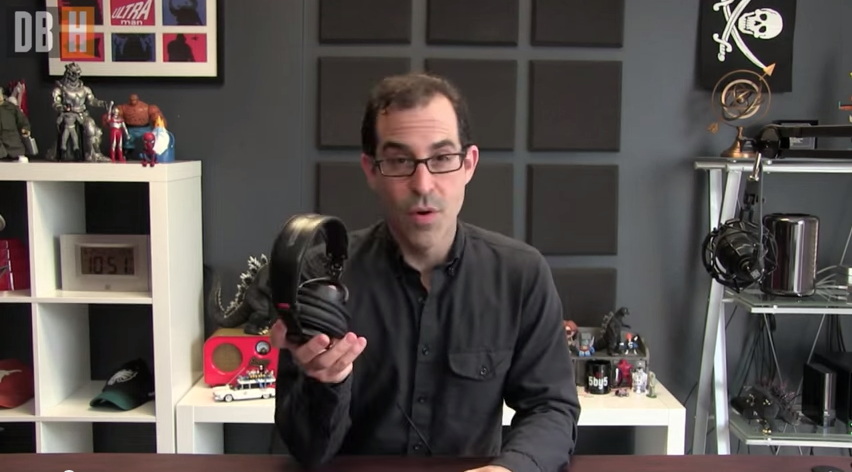Podcasts in 2016 - this is promising and worries the media
- Transfer

Today, trends that were popular ten years ago are becoming relevant again: podcasts from hobbies are gradually turning into professional activities, and many companies create platforms that support the development of this new business area.
Feeling deja vu
What is happening with podcasts has already happened with blogs in 2004. A huge number of quality projects have been created, public attention is growing, the format is changing. Podcasts, like blogs in their time, help to unleash the creative potential of authors - the amount of generated content is so huge that no one can fully appreciate it.
The question is, what is the future of podcasts? What will happen to them with blogs over the past ten years? By following the development of the diverse world of blogs, you can learn many useful lessons about what you need and what you don’t need to do in this environment.
One part of the old blogosphere has transformed into professional media, spawning digital online publications such as, for example, BuzzFeed. Another part of the blogs migrated to social platforms, such as Facebook and Twitter, which simplified the process of their maintenance. Printed magazines and newspapers were stuck somewhere in the middle: they lacked the knowledge to compete with the new digital formats, and the size of the business did not allow them to fully compete with large platforms.
Today, due to the newfound audio format, other members of the journalistic sphere have come under attack, however, the main influencing factors have remained the same. Consider three trends that are already gaining momentum.
Moving Podcasts Into the Professional Field
If you suddenly think of listening to all the podcasts on iTunes, then you will realize that most of this content is made by amateurs. Against the background of a large amount of “garbage”, high-quality projects stand out very much. The most popular of them are radio shows with experienced presenters and a bit of humor.
The most important thing is the quality of the content. Reporter Alex Blumberg quit public radio in 2014 to start working on the Gimlet Media platform, which he wants to make similar to “HBO, but for podcasts.” “We spend a huge amount of time and money to perfect 95% of podcasts,” he said earlier this year. - I think that many still regard their creation as a simple hobby. But I believe that a podcast is a show: a professional, perfected, over which people who know their job have worked for a long time. ”
Gimlet has created a series of popular podcasts that regularly make it to the top most downloaded audio shows. Other companies also work in this direction, for example Panoply (created by a team from Slate) or Midroll (now owned by Scripps) - these are platforms designed to increase the effectiveness of advertising audio clips.

The emergence of new platforms
Notably, anyone can create podcasts. To publish your work, you only need access to the Internet.
It seems that such openness will soon be under attack. Almost all podcasts are distributed in MP3 format. Once you have downloaded an MP3 file, information about it becomes inaccessible to publishers. They do not know how many times you have listened to the file: one, one hundred or not once. The creators of podcasts lose the opportunity to follow the individual preferences of the audience: what other shows do they listen to, what ads do they miss, what episode did they not listen to until the end?
You might think: “Great! I don’t want any office to follow me! ” However, in the online business, many, especially advertisers, need this data, and you can be sure they will try to get it.
To do this, you need to create a new format specifically for podcasts - something with more functionality than MP3s. Developers from the Swedish startup Acast promise to take the experience of listening to an audio show to a new level by creating an application that will allow you to embed photos and videos into the transfer. Of course, these functions will make it possible to promote more complex types of advertising. With Acast, companies will be able to create “dynamic ads” for each podcast release individually.
Acast and other companies starting to work in this area believe that “useless” MP3 slows down and limits the ability of podcasts, and that you need to get rid of it. However, not everything is so simple here. Absolutely any new technology will not be as open as the RSS-plus-MP3 bundle, the failure of which will lead to the spread of private platforms.
Marco Arment , who develops Overcast , a popular iOS podcast app, believes companies will “take control of the open market and hire an army of clerks to monitor product distribution and take a certain percentage of the revenue for podcast creators.” That is how big money is made. And usually it works.
Back to the blogs. If you started a blog in the mid-90s, then you most likely yourself wrote a website for it. At the beginning of the 2000s, Blogspot hosting became popular, which simplified the process of creating a blog, leaving back-end development to companies such as Google. Today, most of what we called “blogging” 10 years ago has migrated to social platforms.
Anyone can create podcasts, but it's quite complicated, and the technology used is limiting the flight of fancy. Soon, third-party companies will offer their "solutions" to this problem and begin to build on this business.
What will happen to market participants
What will the future of journalism show us? NPR and its partner stations experienced the transition to the digital format better than other news sources. However, their audience stopped growing, and this is a very alarming sign, meaning that they have nothing to attract new listeners. One reason for this is podcasts. Instead of listening to local radio, people go online from smartphones or car multimedia systems and listen to the program that they like best.
Of course, there are examples of successful podcasts produced by radio stations. In October, WNYC announced the creation of a new division of WNYC Studios worth $ 15 million, which will be engaged in the creation of podcasts.
It's not hard to guess how changing the format will affect public radio stations. There are over 900 radio stations throughout the United States, most of which cannot be compared to WNYC. They still exist mainly through a partnership with NPR, distributing their content. In most markets, public radio stations have little to no competition in the news industry.
Some newspaper giants, such as The New York Times, were able to create a highly qualified team for working with digital content, which helped them remain competitive after the advent of the new format. But in America, there are more than 1,400 publications that lack the resources, experience, or a smart plan of action to keep readers interested in the online environment. I believe that over time, the gap between WNYC and their colleagues from small radio stations will only increase.
My description of future events may seem rather gloomy, but in fact it is not. There will be many new shows that can easily find an audience, as happened with blogs. However, the transition of podcasts to the professional field and the emergence of a large number of platforms dedicated to this occupation again threaten to undermine part of the journalistic business. This will have both positive and negative consequences.
 In the latest issue of the Sound podcast on January 2, we discussed Christmas sales in Audiomania and the topic of the double-blind method, which many wrote about in the comments on the Sound podcast in iTunes.
In the latest issue of the Sound podcast on January 2, we discussed Christmas sales in Audiomania and the topic of the double-blind method, which many wrote about in the comments on the Sound podcast in iTunes. [ iTunes - RSS - Web - Audio File ]
We will be glad to see your questions and suggestions on topics for discussion in 2016. Have a good holidays, friends!
